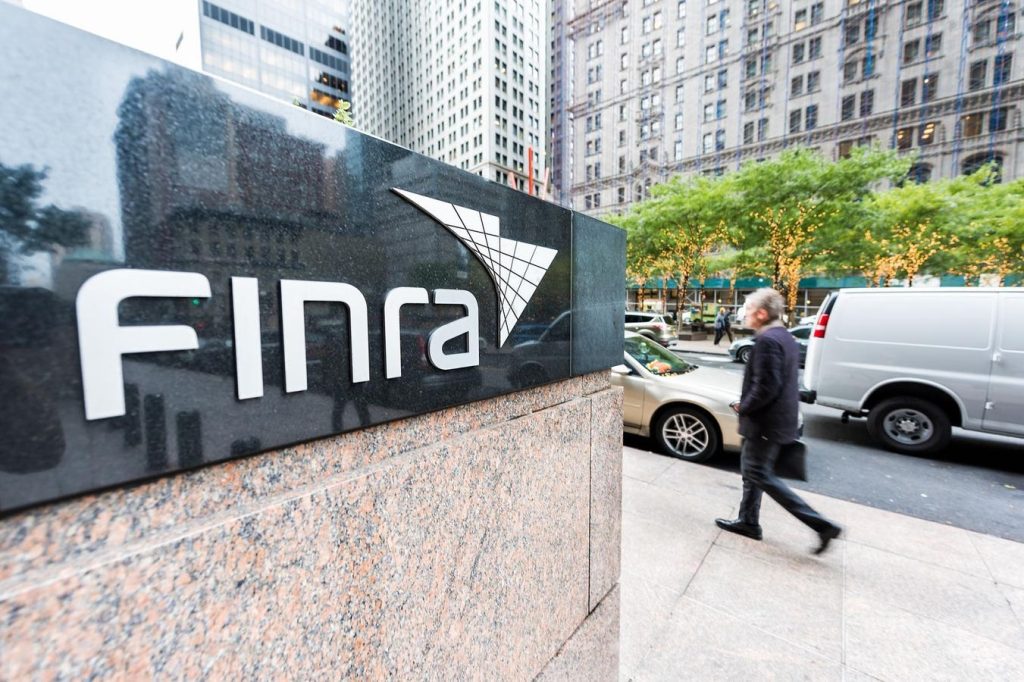A recent court ruling says FINRA can no longer shut down broker-dealers on its own and now requires SEC approval. That’s good news for unscrupulous brokerages, which could get even better once Trump’s regulatory regime takes over.
getty
The latest development in a heated years-long legal battle between Utah-based brokerage Alpine Securities and its regulator, the Financial Industry Regulatory Authority (FINRA), has added more uncertainty over the future of market regulation.
On November 22, a three-judge panel in the D.C. Court of Appeals ruled that while FINRA can move forward with its expedited proceeding to expel Utah penny stock clearing firm Alpine Securities from membership, it cannot do so without approval from the Securities and Exchange Commission (SEC). The move hamstrings one of the most prominent financial regulatory bodies in the United States, especially at a time when the incoming Republican administration has pledged large-scale deregulation across industries. FINRA is a member-run private organization that licenses and oversees 628,000 brokers and 3,300 firms in the United States including Charles Schwab, Merrill Lynch and Fidelity.
“This takes away the power of a self-regulatory organization to regulate,” says Benjamin Edwards, a professor at the William S. Boyd School of Law at the University of Nevada, Las Vegas. Adds securities lawyer Brenda Hamilton, “Requiring SEC review will definitely lead to a pull back in FINRA’s ability to enforce its own rules for members. It’s also really not clear what’s going to happen with all of the open cases and investigations that are out there.”
The FINRA case has been closely watched and drawn attention in recent years because of the constitutional challenges originally brought forth by Alpine against FINRA, namely that the regulator exercises executive powers without its officials being accountable to the president, according to Article II of the Constitution.
In an investigation published in September, Forbes delved into the contentious history between Alpine’s owner and FINRA. Alpine and its sister firm, Phoenix-based Scottsdale Capital Advisors, are both owned through a series of trusts controlled by broker John Joseph Hurry. The two firms, which specialize in “liquidating” risky penny stocks, have a long track record of run-ins with regulators, with multiple SEC and FINRA enforcement actions brought against them over the years. Hurry has long maintained that his firms have been unfairly targeted by FINRA because it has a bias against brokerages dealing in microcaps.
FINRA originally attempted to expel Alpine in March 2023 after it brought a proceeding against the firm for spiking customer account fees by 60,000% three years prior and repeatedly violating a cease-and-desist order. Hurry and his firm appealed and have so far avoided being shut down, with their challenge to Finra’s constitutionality still ongoing.
“The SEC review helps ensure that even Alpine Securities receive a fair proceeding on the FINRA charges,” says Hamilton. “But all Alpine won was a delay – they are still likely going to be expelled, as the Court found that Alpine is unlikely to win on the merits of their case.”
Many believe the case could still challenge FINRA’s legal foundation in a major way. Instead of ruling on Alpine’s constitutional challenges, the three-judge panel recently sent the decision back to the district court. While the pathway for the case to potentially end up in the Supreme Court is now delayed, that possibility still seems likely, experts say.
According to a FINRA statement on the decision, the agency remains confident that the self-regulatory model will continue. “The decision does not impair FINRA’s day-to-day work in carrying out its mission of protecting investors and ensuring market integrity,” according to a spokesperson. “As FINRA continues to consider its response to the decision, it believes it can implement measures to address the framework the court requires.”
The implications of the latest court decision are wide-reaching, not least of all because of the changing regulatory landscape under the new administration. President-elect Donald Trump has pledged to de-regulate and slash government costs, with some speculating that some agencies could get eliminated altogether.
Longtime crypto advocate Paul Atkins, founder of consultancy Patomak Global Partners, is Trump’s pick for new SEC chair.
David Paul Morris/Bloomberg Finance LP
On December 5, Trump nominated Paul Atkins, a crypto advocate who is staunchly in favor of deregulation, to run the SEC. Atkins is a former SEC commissioner, though in the years since leaving the agency he has regularly advocated for less market regulation. After working at the SEC, in 2009 he founded consultancy Patomak Global Partners, which is based in Washington D.C. and represents financial firms and crypto companies when they deal with the SEC or other regulators.
With the regulatory framework of previous-chair Gary Gensler’s era set to be dismantled, some experts believe self-regulators like FINRA will be neutered and the number of enforcement actions they can bring against bad actors will likely decrease.
“I think we can expect an uptick in shady actors,” predicts Hamilton. “With less regulation, it’s always easier for people to break the rules to operate—they can do a lot more, and get away with it for longer, before or if they are caught.”
Still, others remain hopeful. “Of all the people that possibly could have been picked, Atkins strikes me as a reasonable and workable choice,” says Edwards referring to Atkins’ significant regulatory track record and experience in corporate law at white shoe firm Davis Polk & Wardwell. “He is someone with experience who understands securities laws, so I can’t imagine he would want to significantly decrease enforcement.”

